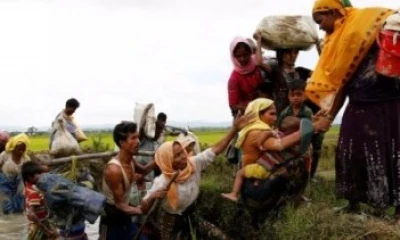The Central Government has firmly asserted before the Supreme Court that illegal Rohingya Muslim migrants do not possess a fundamental right to reside and settle in Bharat. In an affidavit submitted to the court, the government emphasised that the judiciary should refrain from intruding into legislative and policy matters, particularly those within the domain of Parliament and the executive.
Citing numerous judgments of the Supreme Court, the government outlined that under Article 21 of the Constitution, a foreigner is entitled only to the right to life and liberty, without any inherent right to reside and settle in the country – a privilege exclusive to Indian citizens.
Furthermore, the affidavit stated that Bharat does not recognise UNHCR refugee cards, which some Rohingya Muslims have obtained in an attempt to claim refugee status. The government staunchly rebuffed any equivalence between Rohingyas and refugees from Tibet and Sri Lanka, slamming the petitioner’s plea to treat them similarly.
The affidavit emphasised that the determination of refugee status is solely a policy decision and cannot be dictated by judicial orders. It underscored that the right to equality is not applicable to foreigners and illegal migrants, firmly rejecting any notion of extending such rights to them.
The government’s stance underscores its firm position on the issue of illegal migration and refugee status, reinforcing the principle that Bharat’s policies are shaped by legislative frameworks and executive decisions rather than judicial mandates.

















